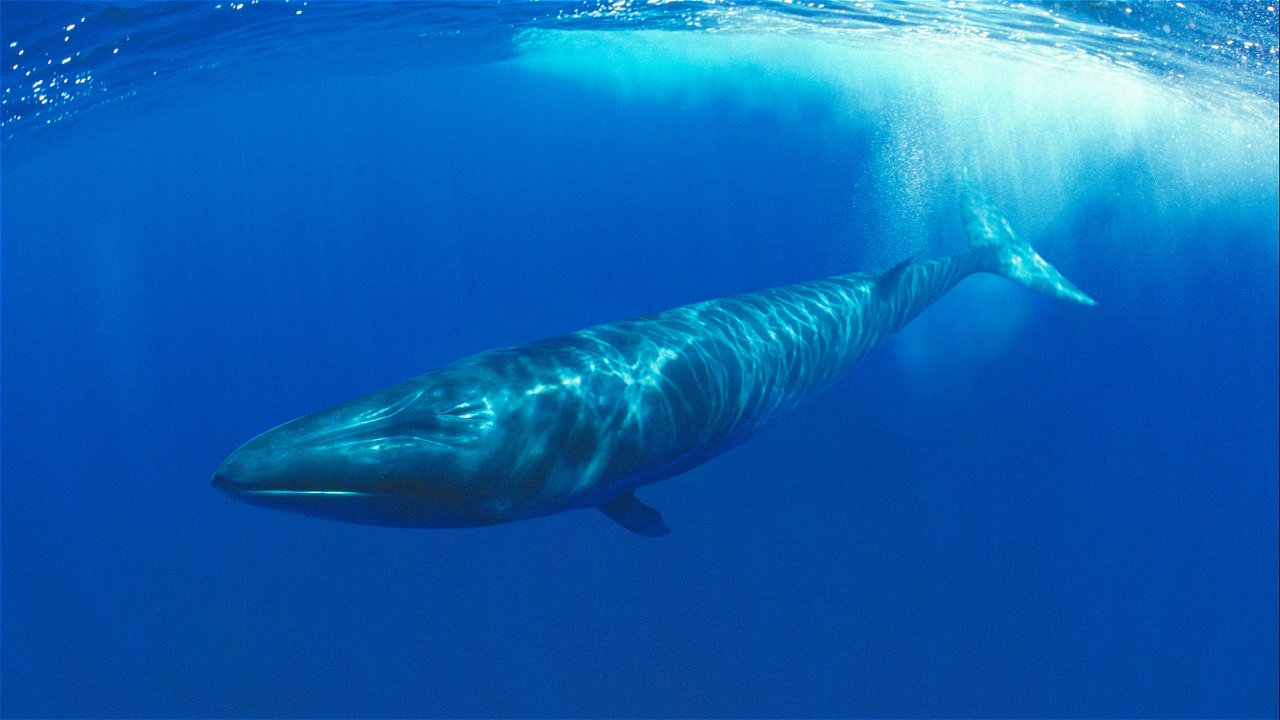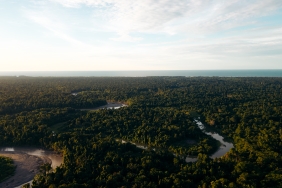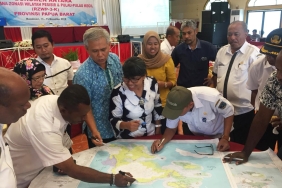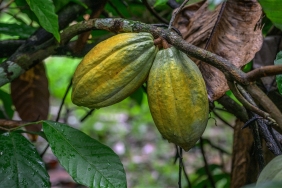WHALE STRANDED IN SOBEI VILLAGE, WONDAMA BAY
By: Kuriani Wartanoi Community Outreach and Development Officer & Ridho Z Monitoring & Surveillance Officer
A sei whale (Balaenoptera borealis) was found stranded dead on the coast of Kampung Sobei, Teluk Duairi District, Teluk Wondama Regency, West Papua. This marine mammal was first found stranded right in front of Yunus Numanderi's house on June 3, 2018 in the morning.
When found, the condition of the whale was dead with the body upside down and signs of decay appeared. Worried that it would cause a bad smell throughout the village, he took the initiative to move the whale to a mangrove area about 500 meters away from the original place which was pulled by a motorized boat. To prevent the whale carcass from returning to the village area, he tied the whale to a mangrove branch.
"The whale was found when I wanted to see the condition of the boat on the beach at 6 am. When it was found, there was already an unpleasant odor from the whale. Afraid that this odor would spread to the whole village, my son and I pulled the whale to another place with a speedboat around 9 am. Then we tied it to a mangrove branch so that this carcass would not return to the village, "explained Yunus.
The WWF-Indonesia team together with Gerard Wambraw, Head of Management Area 2 of Teluk Cenderawasih National Park, observed and measured the whale. The whale, which was 9.4 meters long with a body circumference of 4.1 meters, was a male, suspected to be a Sei whale, Balaenoptera borealis. Wounds or other marks could not be identified because the whale's body was upside down and many parts were decomposed.
According to Petrus Manirei, the Head of Sobei Indah Village, this stranded whale case is the first time that has occurred in Sobei Village. Based on data owned by WWF-Indonesia and information from the staff of the Cenderawasih Bay National Park Center (BBTNTC), La Hamid, at least since 2007 there has never been a case of stranded whales in Wondama Bay.
The whale was buried near the initial place where it was found, which was previously pulled back from the mangrove area. This is because the community is worried that if the burial location is in the mangrove area, mangrove destruction will occur because this process uses heavy equipment escavator. Duairi Bay District Chief, Alexandra Mambor also supervised the whale burial process.
"We are worried that this whale carcass can cause various diseases to the village community, so this burial process must be carried out immediately and also supervised," explained Alexandra.
The whale burial process was also followed by the traditional procession of Sobei Village by placing a plate around the whale's body. Because this was the first time a whale had been stranded in Sobei, the community felt that a traditional procession like this should be carried out. They also believe that the traditional procession is carried out to minimize the negativity of the incident that occurred.
The actions of the Sobei Village Community who are quick to respond need to be highly appreciated. They have also realized the importance of whales in the marine ecosystem and the impact of whale carcasses on human health and other biota if left unattended. Hopefully, with this incident, the Sobei community will gain valuable experience and if one day there is a case of stranded whales, the community itself can take quick action so that the whales can be saved.
For more information please contact:
Ridho Zul Fakhri - Monitoring & Surveillance Officer - WWF Indonesia
HP: +6281282635736, email: ridhozf@gmail.com
Kuriani Wartanoi - Community Outreach and Development Officer - WWF Indonesia
HP: +6281344807002, email: kwartanoi@wwf.id>





